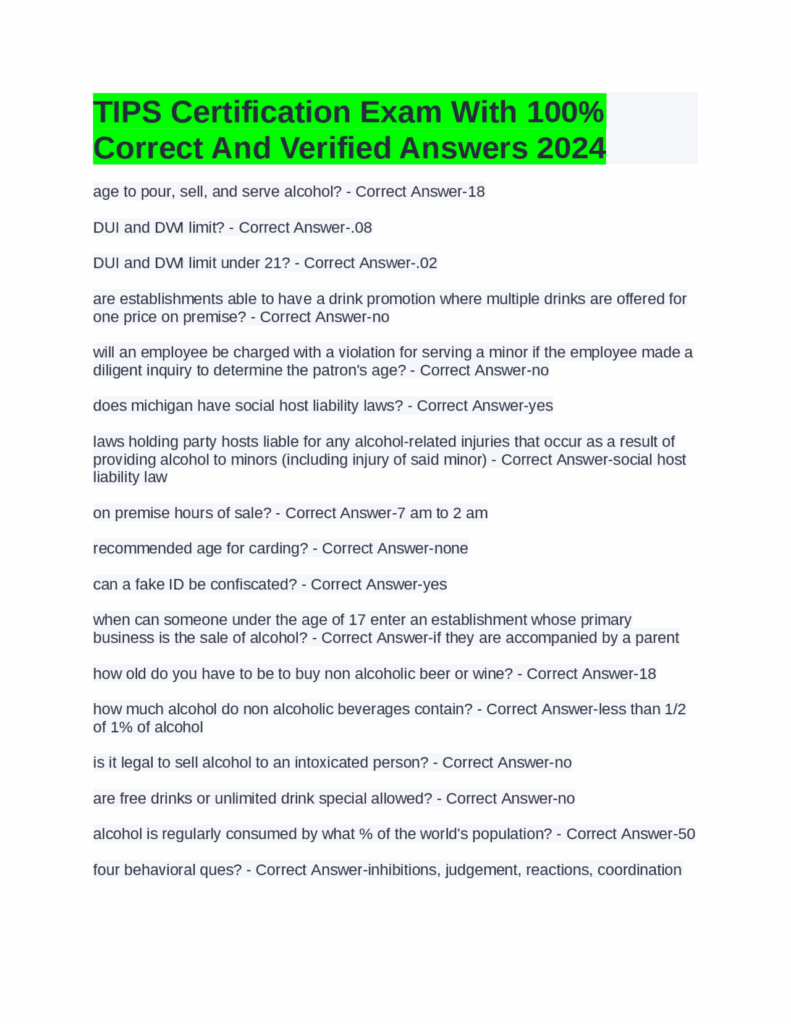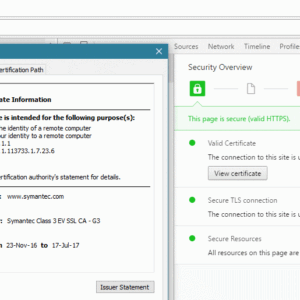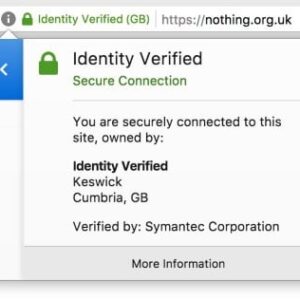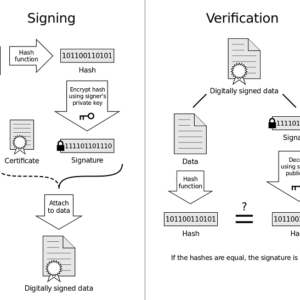
The collection of correct responses to questions posed during the assessment for certification as a support technician for SOTI MobiControl version 15 is a resource sought by individuals preparing to demonstrate their proficiency with the platform. These answers are crucial for those aiming to validate their knowledge and skills in managing and troubleshooting mobile devices and endpoints using the specified software version.
Successfully navigating the certification exam indicates a certain level of competence, which can lead to enhanced career prospects and credibility within the mobile device management (MDM) industry. Historically, such certifications have served as a benchmark for employers and clients alike, assuring them of an individual’s ability to effectively manage and support complex technological deployments. Achieving certification showcases a commitment to professional development and a solid understanding of the software’s functionalities.
Understanding the exam structure, the key topics covered, and available training resources are essential steps in preparing for the assessment. Comprehensive study materials and hands-on experience with SOTI MobiControl 15 are vital for achieving a passing score and earning the support technician certification. Focus on mastering troubleshooting techniques, configuration options, and security protocols within the platform to succeed.
1. Verification of Correctness
The “Verification of Correctness” within the context of the SOTI MobiControl 15 Support Technician Certification Exam is crucial for both the individual seeking certification and the integrity of the SOTI certification program. It directly pertains to the methods and processes employed to confirm the accuracy of responses provided during the examination.
-
Source Validation
Suggested read: Ace Your SOTI MobiControl Exam | Certification Prep
The origin of information used to answer exam questions plays a significant role. Relying on official SOTI documentation, training materials, and verified community resources ensures accuracy. Unofficial or unverified sources may contain outdated or incorrect information, leading to incorrect answers and invalidating the learning process. For example, referencing a third-party blog post for a specific configuration setting may lead to issues if the information is not aligned with SOTI’s recommended practices.
-
Conceptual Understanding
A thorough understanding of the underlying concepts behind SOTI MobiControl 15 functionalities is paramount. Memorizing answers without grasping the core principles can lead to incorrect applications in real-world scenarios, even if the answer was technically correct on the exam. Understanding the “why” behind a particular configuration, rather than just the “how,” ensures the response is correct in its application and purpose.
-
Practical Application
Applying the knowledge gained through practical exercises and real-world scenarios solidifies understanding and confirms the correctness of learned concepts. Testing configurations in a lab environment or simulating troubleshooting scenarios provides tangible evidence of the accuracy of the approach. For instance, deploying a sample application using the steps learned and verifying its successful installation on a managed device confirms the correctness of the deployment process knowledge.
-
Peer Review and Validation
Engaging in peer review or seeking validation from experienced SOTI MobiControl administrators can significantly improve the verification of correctness. Discussing complex scenarios and solutions with others exposes potential flaws in reasoning or overlooked considerations. Constructive criticism and alternative perspectives contribute to a more robust understanding and ensure that the adopted approach is indeed correct and aligned with industry best practices.
Suggested read: Get SOTI MobiControl Exam Answers: Pass Certifications!
These facets of “Verification of Correctness” collectively contribute to the validity of the SOTI MobiControl 15 Support Technician Certification. The emphasis on official sources, conceptual understanding, practical application, and peer review ensures that individuals seeking certification not only answer exam questions correctly but also possess the knowledge and skills necessary to effectively support and manage SOTI MobiControl 15 deployments in real-world scenarios. This ultimately upholds the value and credibility of the certification program.
2. Ethical Acquisition Methods
Ethical Acquisition Methods, in the context of preparing for the SOTI MobiControl 15 Support Technician Certification Exam, refers to the morally sound and legally compliant strategies employed to gain the knowledge and skills necessary for success. It is paramount to understand that shortcuts or dishonest practices undermine the value of the certification and the competence of the individual.
-
Official Training Resources
The utilization of official SOTI training courses, documentation, and learning platforms is the most ethical and effective method for acquiring the requisite knowledge. These resources are designed by SOTI experts and provide a comprehensive and accurate understanding of the platform’s features and functionalities. For example, enrolling in the official SOTI MobiControl training program ensures access to up-to-date information, hands-on labs, and expert guidance. Deviation from these official sources introduces the risk of misinformation and unethical preparation.
-
Hands-on Experience
Practical experience through hands-on engagement with SOTI MobiControl 15 is crucial for solidifying theoretical knowledge and developing practical skills. Setting up a lab environment, configuring device profiles, troubleshooting connectivity issues, and deploying applications provides invaluable learning opportunities. Reliance on memorized answers or brain dumps cannot replace the experience gained from real-world scenarios. Ethical acquisition involves actively seeking opportunities to apply learned concepts in a practical setting.
-
Knowledge Sharing and Collaboration
Suggested read: Peptide Therapy Certification: What Every Healthcare Professional Needs to Know in 2025
Engaging in collaborative learning with peers, participating in online forums, and seeking guidance from experienced SOTI professionals can significantly enhance understanding and knowledge retention. Sharing insights, asking questions, and learning from others’ experiences fosters a collaborative learning environment. However, this collaboration must be ethically conducted, respecting intellectual property and avoiding the unauthorized sharing of exam-specific information. For instance, participating in a SOTI community forum to discuss best practices is ethical, while sharing or soliciting exam questions is not.
-
Respect for Intellectual Property
Upholding the intellectual property rights of SOTI and other content creators is a fundamental aspect of ethical acquisition. Accessing or distributing copyrighted materials, such as exam questions or unauthorized training materials, is a violation of ethical and legal standards. Utilizing legitimate sources and respecting copyright laws ensures that the knowledge gained is acquired through honest and responsible means. For example, purchasing a licensed training guide is ethical, while downloading a pirated copy is not.
In conclusion, the ethical acquisition of knowledge and skills pertaining to SOTI MobiControl 15 is not merely a matter of personal integrity but also crucial for maintaining the credibility of the certification and the competence of certified professionals. Adhering to official training resources, engaging in hands-on experience, fostering collaborative learning, and respecting intellectual property rights are essential components of an ethical preparation strategy.
3. Understanding Rationale
The acquisition of correct responses, or the apparent “soti mobicontrol 15 support technician certification exam answers,” is of limited value without a corresponding comprehension of the underlying rationale. A memorized answer, devoid of an understanding of why it is correct, fails to equip the individual with the problem-solving skills necessary for real-world application. The certification exam aims to assess not only knowledge recall but also the ability to apply that knowledge to novel situations within a SOTI MobiControl 15 environment. Consider, for example, a question concerning the optimal method for distributing a new application to a specific subset of devices. Simply knowing the answer (e.g., using a Profile with a specific assignment rule) is insufficient. A certified technician should understand why that method is preferred over alternatives (e.g., direct deployment, package deployment) considering factors such as network bandwidth, device storage, and user interaction.
The practical significance of understanding the rationale extends beyond simply passing the certification exam. In daily tasks, a support technician will encounter unforeseen issues and unique configurations. An understanding of why a feature operates in a certain way enables effective troubleshooting and the development of tailored solutions. For instance, if a device fails to enroll properly, a technician who merely knows the “correct” enrollment steps might be stymied. However, a technician who understands the underlying enrollment process including certificate validation, network connectivity requirements, and device agent configuration can systematically diagnose and resolve the issue. This deeper understanding allows for adaptation and improvisation, crucial skills for effective support.
Suggested read: SPAB Certification: Everything You Need to Know About School Pupil Activity Bus Certification in California
The challenge lies in shifting the focus from rote memorization to conceptual understanding. While practice exams and study guides can be helpful tools, they should be used as a means to reinforce understanding, not to replace it. Engaging with the official SOTI documentation, participating in hands-on labs, and actively troubleshooting real-world scenarios are essential steps in developing the deeper level of understanding required for success. This approach ensures that certified technicians not only possess the “soti mobicontrol 15 support technician certification exam answers” but, more importantly, can apply their knowledge effectively and ethically in a dynamic and demanding environment. The ultimate goal is to produce competent professionals capable of providing effective support for SOTI MobiControl 15, not simply individuals who can pass an exam.
4. Platform Proficiency
Platform proficiency, in the context of the SOTI MobiControl 15 Support Technician Certification Exam, represents the demonstrable ability to effectively utilize and navigate the SOTI MobiControl 15 platform. There exists a direct correlation between an individual’s platform proficiency and their likelihood of correctly responding to questions on the certification exam. The exam assesses not only theoretical knowledge but also the practical application of that knowledge within the SOTI MobiControl 15 environment. For example, a question might require identifying the correct steps to configure a geofence policy. An individual with high platform proficiency will be able to quickly recall the relevant sections of the management console and the required settings, whereas an individual lacking such proficiency may struggle to locate the correct options, even if they are familiar with the general concept of geofencing. This ability to translate theoretical knowledge into practical action is a key component of success.
The importance of platform proficiency extends beyond simply answering exam questions. Certified technicians are expected to provide real-world support and management for SOTI MobiControl 15 deployments. Without a solid understanding of the platform’s interface, features, and functionalities, they will be unable to effectively troubleshoot issues, implement configurations, or manage devices. Consider a scenario where a technician is tasked with diagnosing why a group of devices is failing to receive application updates. A proficient technician will be able to leverage the platform’s logging and reporting tools to identify the root cause, such as a network connectivity issue, an incorrect assignment rule, or a corrupt application package. The technician’s ability to quickly and accurately identify and resolve the issue directly impacts the efficiency and reliability of the mobile device management system.
In summary, platform proficiency is an indispensable element of successfully navigating the SOTI MobiControl 15 Support Technician Certification Exam and of effectively performing the duties of a certified support technician. Reliance solely on memorized answers, without a corresponding practical understanding of the platform, will ultimately prove insufficient in a real-world environment. Therefore, individuals seeking certification should prioritize hands-on experience and continuous learning within the SOTI MobiControl 15 environment to ensure that they not only know the “soti mobicontrol 15 support technician certification exam answers” but also possess the ability to apply their knowledge effectively and efficiently.
5. Exam Integrity
Exam integrity forms the cornerstone of a credible certification program, including the SOTI MobiControl 15 Support Technician Certification. Its importance is directly linked to the validity and reliability of the outcomes, particularly regarding access to, or the relevance of, “soti mobicontrol 15 support technician certification exam answers” acquired through unauthorized means. When exam integrity is compromised, the certification loses its value as an indicator of true competency. For instance, if individuals can readily obtain actual exam questions and answers (the “soti mobicontrol 15 support technician certification exam answers”) without possessing the requisite knowledge, the certification ceases to accurately reflect their ability to effectively manage and support SOTI MobiControl 15 deployments. A real-world example would involve a certified technician, who obtained the certification through unethical means, being unable to troubleshoot a common device enrollment issue, thereby undermining the confidence of their employer in the certification program.
The presence of “soti mobicontrol 15 support technician certification exam answers” online is a clear indication of a breach in exam integrity. Such breaches create a situation where individuals may prioritize memorization over genuine understanding, hindering their ability to apply their knowledge in complex, real-world scenarios. The practical implication is that certified technicians may lack the critical thinking and problem-solving skills required to effectively address unforeseen challenges or implement customized solutions. This deficiency not only impacts the performance of the individual but also reflects poorly on the reputation of the certification program and the SOTI MobiControl platform.
Maintaining exam integrity requires a multi-faceted approach, including secure exam delivery mechanisms, strict proctoring procedures, and ongoing monitoring for potential breaches. Robust measures to prevent the unauthorized distribution of “soti mobicontrol 15 support technician certification exam answers” are essential. While these preventative measures help, the ultimate challenge lies in fostering a culture of ethical behavior among candidates, emphasizing the importance of genuine learning and the long-term benefits of competency over the short-term gains of cheating. Preserving exam integrity ensures that the SOTI MobiControl 15 Support Technician Certification remains a valuable and respected credential, accurately representing the knowledge and skills of certified professionals.
Suggested read: Is NASM Certification Worth It? An Honest Look at Costs, Benefits, and Career ROI
Frequently Asked Questions Regarding SOTI MobiControl 15 Support Technician Certification Exam Information
The following addresses common inquiries concerning preparation for the SOTI MobiControl 15 Support Technician Certification Exam, specifically regarding the use of unauthorized or leaked exam content.
Question 1: What are the potential consequences of utilizing leaked “soti mobicontrol 15 support technician certification exam answers”?
The utilization of leaked exam content can lead to invalidation of certification, damage to professional reputation, and potential legal repercussions from SOTI. Furthermore, reliance on such materials does not foster the comprehensive understanding necessary for effective support in real-world scenarios.
Question 2: How can preparation be optimized without resorting to “soti mobicontrol 15 support technician certification exam answers” from unofficial sources?
Preparation should focus on official SOTI training materials, hands-on experience with the platform, and participation in relevant community forums. A thorough understanding of the software’s functionalities and practical application is more valuable than memorizing answers.
Suggested read: A4M Peptide Certification: Everything Practitioners Need to Know Before Enrolling
Question 3: What measures are implemented to detect the use of unauthorized “soti mobicontrol 15 support technician certification exam answers” during the certification process?
SOTI employs various methods to detect and prevent cheating, including exam proctoring, data analysis of response patterns, and regular updates to the exam questions. Individuals suspected of cheating are subject to investigation and potential sanctions.
Question 4: Does acquiring “soti mobicontrol 15 support technician certification exam answers” guarantee success in real-world SOTI MobiControl deployments?
Acquiring answers without understanding the underlying concepts does not guarantee success. Real-world deployments require critical thinking, problem-solving skills, and a thorough understanding of the SOTI MobiControl platform, all of which are not developed through memorization.
Suggested read: Why ISO 9000 Certification Consultants Are Essential for Business Growth
Question 5: Where can legitimate study materials and resources be found for the SOTI MobiControl 15 Support Technician Certification Exam?
Legitimate study materials and resources are available through the official SOTI website, authorized training partners, and reputable online learning platforms. These sources provide accurate and up-to-date information aligned with the exam objectives.
Question 6: What are the long-term benefits of earning the SOTI MobiControl 15 Support Technician Certification through ethical preparation?
Earning the certification through ethical preparation demonstrates a commitment to professional development, enhances credibility within the industry, and equips individuals with the skills necessary to effectively manage and support SOTI MobiControl deployments, leading to improved career prospects and job satisfaction.
It is paramount to prioritize ethical preparation and a genuine understanding of the SOTI MobiControl 15 platform to ensure long-term success and credibility as a certified support technician.
Suggested read: ISO 27001 Certification Consultants: Your Strategic Partner for Information Security Excellence
The following section will cover alternative preparation methods.
Strategies Avoiding Reliance on “soti mobicontrol 15 support technician certification exam answers”
Effective preparation for the SOTI MobiControl 15 Support Technician Certification Exam requires a strategic approach that minimizes dependence on potentially unreliable and unethical sources. The following outlines key strategies for exam success.
Tip 1: Official SOTI Training Curriculum Access and diligently study the official training materials provided by SOTI. This curriculum is specifically designed to cover all exam objectives and provides accurate, up-to-date information. Utilizing these materials ensures a comprehensive understanding of the platform.
Tip 2: Hands-On Lab Environment Establish a dedicated lab environment to practice configurations and troubleshoot common issues. Practical experience is invaluable for solidifying theoretical knowledge and developing problem-solving skills. Simulation of real-world scenarios enhances preparedness.
Tip 3: Understand SOTI’s Official Documentation Familiarize oneself with SOTI’s official documentation, including user guides, release notes, and knowledge base articles. These resources provide detailed explanations of features, functionalities, and best practices. Regular consultation of these documents is crucial.
Tip 4: Active Community Engagement Participate actively in SOTI’s online community forums and discussion groups. Engaging with other users and experts provides opportunities to learn from their experiences, ask questions, and gain insights into real-world deployments. Constructive dialogue enhances knowledge and problem-solving skills.
Tip 5: Detailed Exam Objective Review Obtain and thoroughly review the official exam objectives outlined by SOTI. This allows focused study on specific areas and ensures comprehensive preparation for all tested topics. A structured approach based on exam objectives is essential.
Suggested read: CIT Certificate: Everything You Need to Know About Corporate Income Tax Certification in 2026
Tip 6: Prioritize Troubleshooting Scenarios Focus on mastering troubleshooting techniques for common SOTI MobiControl 15 issues. The ability to diagnose and resolve problems efficiently is a critical skill for a support technician. Simulate troubleshooting scenarios to develop expertise.
Tip 7: Explore Integration Capabilities Gain a solid understanding of how SOTI MobiControl 15 integrates with other systems and technologies. This includes integrations with enterprise mobility management (EMM) platforms, identity providers, and security solutions. Understanding these integrations enhances overall platform competency.
Strategic preparation, coupled with hands-on experience and a dedication to ethical learning practices, provides a strong foundation for success in the SOTI MobiControl 15 Support Technician Certification Exam. This approach minimizes reliance on external sources and promotes long-term competency.
The article will now present its conclusion.
Conclusion
The exploration of “soti mobicontrol 15 support technician certification exam answers” has revealed the crucial importance of ethical preparation and a comprehensive understanding of the platform. Relying on unauthorized content compromises the integrity of the certification and undermines the skills necessary for effective real-world support. Legitimate methods, including official training, hands-on experience, and community engagement, foster genuine competency.
Upholding the value of the SOTI MobiControl 15 Support Technician Certification requires a commitment to ethical conduct and a focus on developing practical skills. Success in this field hinges not on memorized answers but on the ability to effectively apply knowledge and solve real-world problems. Pursuing certification with integrity ensures a valuable credential and a solid foundation for a successful career in mobile device management.





